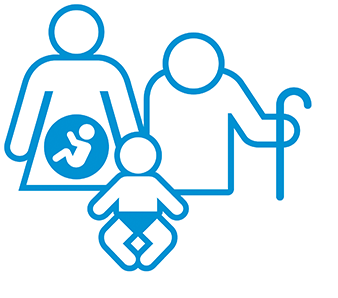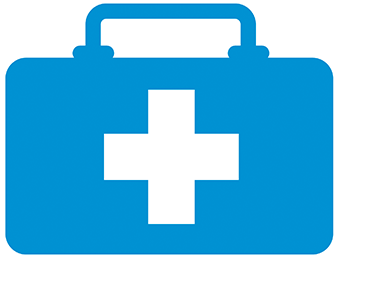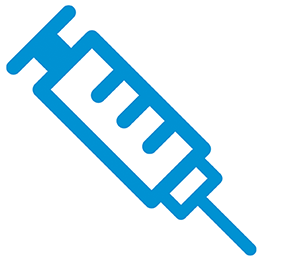Inhalte
- Infektionen
- Erregersteckbriefe
- Adenoviruses
- Borreliosis
- Campylobacter
- Clostridium difficile
- Coronavirus SARS-CoV-2 / COVID-19
- DENGUE FEVER
- Ebola virus disease
- EHEC
- TBE
- Flu (Influenza)
- Hand, foot and mouth disease
- Hantaviruses
- Hepatitis A
- Hepatitis B
- Hepatitis C
- Whooping cough
- Scabies
- Legionella
- Measles
- Meningococcal
- MERS Coronavirus
- Mpox
- MRGN
- MRSA
- Mumps
- Noroviruses
- Poliomyelitis (Polio)
- Ringel rubella
- Rubella
- Rotaviruses
- RSV
- Salmonella
- Scarlet fever
- Tuberculosis
- West Nile fever
- Chickenpox / Shingles
- Erregerarten
- Übertragungswege
- Krankheitsbilder
- Erregersteckbriefe
- Impfen
- Für Kinder (0-12 Jahre)
- Coronavirus SARS-CoV-2
- Diphtherie
- FSME (Frühsommer-Meningoenzephalitis)
- Grippe (Influenza)
- Hepatitis B
- Hib (Haemophilus influenzae b)
- HPV (Humane Papillomviren)
- Keuchhusten (Pertussis)
- Masern
- Meningokokken
- Mumps
- Pneumokokken
- Polio (Kinderlähmung)
- Rotaviren
- Röteln
- Tetanus (Wundstarrkrampf)
- Windpocken (Varizellen)
- RSV-Prophylaxe
- Für Jugendliche (12-17 Jahre)
- Für Erwachsene
- Für Schwangere
- Wissenswertes zum Impfen
- 20 Fragen und Antworten zum Impfen
- Aktive und passive Immunisierung
- Das Immunsystem
- Gemeinschaftsschutz
- Impfbereitschaft in Deutschland
- Impfstoffe
- Impfstofflagerung
- Impfsystem in Deutschland
- Kombinationsimpfstoffe
- Masernschutzgesetz
- Schutz vor ansteckenden Krankheiten
- Sicherheit von Impfungen
- Stress- und schmerzarmes Impfen
- Wie Impfempfehlungen zustande kommen
- Impfmythen
- Für Kinder (0-12 Jahre)
- Impfchecks
- Hygienetipps
- Mediathek
- Themen





